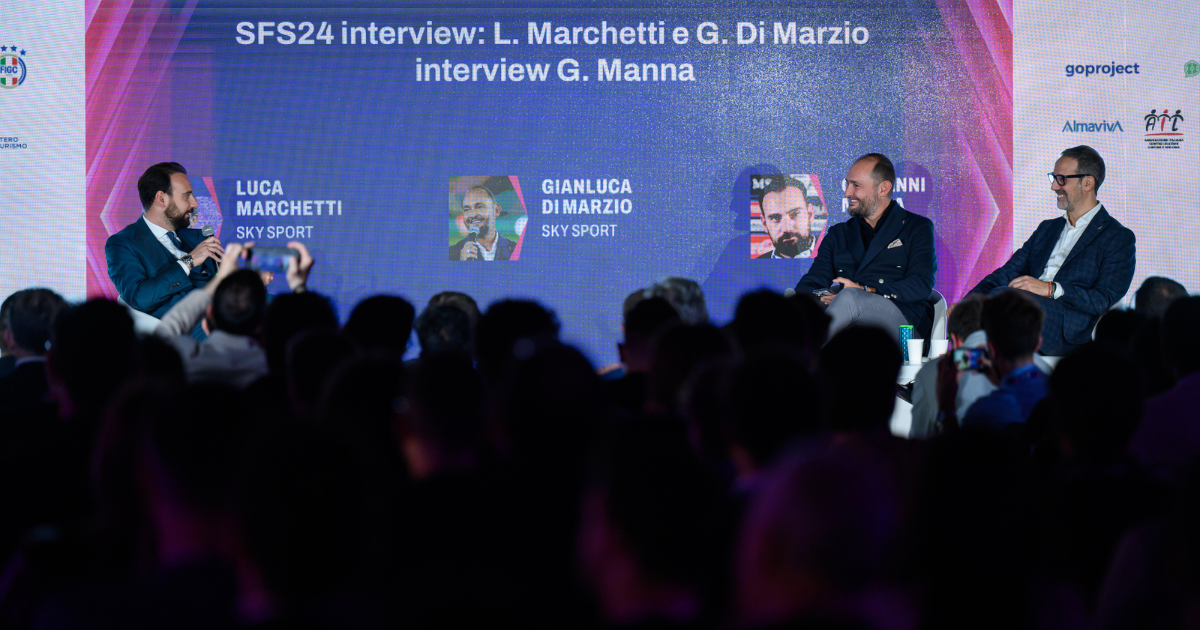
“We aim for a privately owned stadium and focus on the youth sector,” Giovanni Manna said at the SFS
Giovanni Manna, Sporting Director of Napoli, was a guest at the SFS, interviewed by Sky Sport journalists Luca Marchetti and Gianluca Di Marzio. Many topics were discussed: from his professional journey to future career challenges, as well as the current season under the leadership of Aurelio De Laurentiis in Naples.
“At Lugano, I worked as a team manager, and there wasn’t a consolidated structure, so I operated as a self-starter. Fabio Paratici and Walter Sabatini have been indispensable references. A second team for Napoli? As of today, we are more focused on refurbishing the sports center and creating a privately owned stadium: essential assets for a club that aims to work efficiently and enhance the entire youth sector,” responded the Sporting Director under the questioning of Marchetti and Di Marzio.
The discussion also touched on the use of numbers and data. Moneyball has, in fact, become a significant part of scouting and management activities and now seems indispensable. However, it was clarified that while they serve as a valuable support tool, they cannot cover all possible variables or fully explain the tactical and emotional intelligence of the players being evaluated. The conversation about players also tied into negotiations surrounding image rights management and deals with technical sponsors.
A lates challenging season that partially fell short of many expectations. From there, a grand restart began, with initial discussions involving Aurelio De Laurentiis and Antonio Conte, alongside strategic decisions in the club and transfer market surrounding key players like Alessandro Buongiorno, Scott McTominay, Khvicha K’varatskhelia, Victor Osimhen, and Romelu Lukaku.
Little was said about the January transfer window, with no major signings expected—barring unforeseen developments. Instead, the panel provided an opportunity to discuss the broader need to reform the “football system” as a whole. How? For example, by supporting the proposal to close the transfer window before the start of the sports season—a solution that, according to Manna, has its own logic, although it requires a unified and consistent direction across the European football landscape, which is currently lacking.
Finally, the concluding part of the panel focused on expanding squad sizes to accommodate increasingly congested calendars and the economic disparity with the Premier League. “The European campaigns of Italian teams in recent years have been very positive, even though we are often inclined to think otherwise. The gap with the Premier League is primarily financial, driven by television rights, merchandising, and stadium revenue,” Manna explained.
Manna’s vision, as he himself declared, is fueled by the enthusiasm of the fans. Only a collective and shared approach, he emphasized, can deliver reliable results over the long term.



